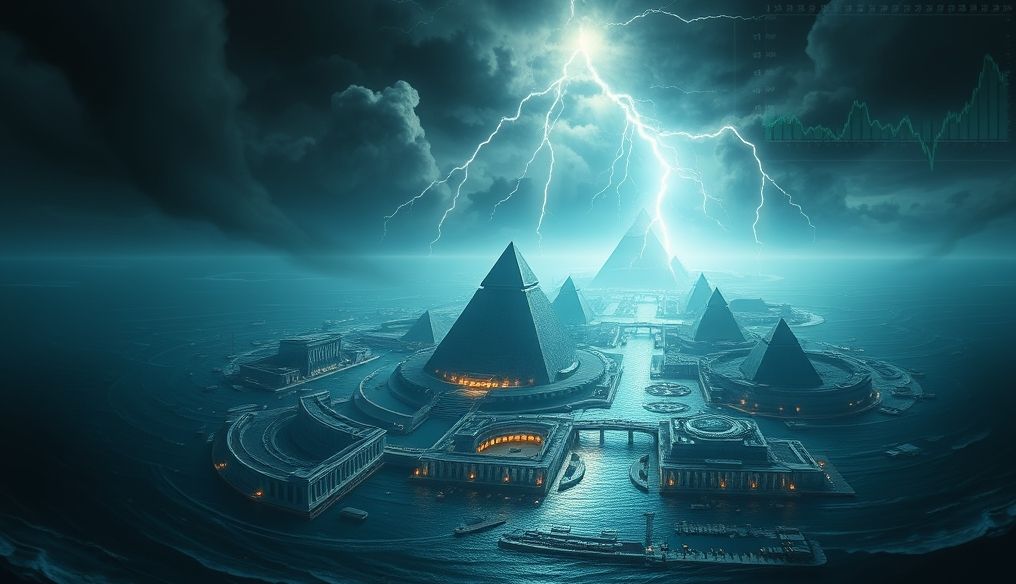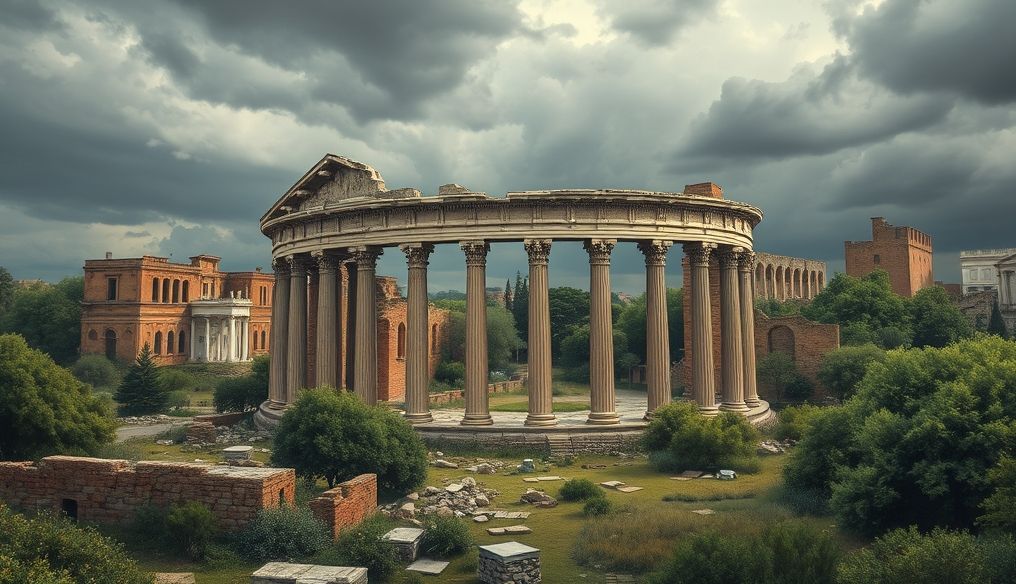Is Atlantis More Than Just a Myth? A Scientific and Historical Look at the Lost City
The legend of the lost city of Atlantis has captivated human imagination for centuries. Was it a real, advanced civilization, or just a fictional tale? This article explores the possible historical and scientific evidence behind this mysterious civilization.
What is the Legend of Atlantis?
Atlantis first appeared in the writings of the Greek philosopher Plato in his dialogues "Timaeus" and "Critias" around 360 BC. Plato described Atlantis as a great naval power that conquered parts of Europe and Africa before sinking into the Atlantic Ocean due to a natural catastrophe.
Plato describes Atlantis:
For there was a time, Solon, before the great deluge of all, when the city which now is Athens was first in war and in every way the best governed of all cities; she is said to have performed the noblest deeds and to have produced the fairest fruits of virtue; she was inhabited by men of the greatest excellence, of whom all that we have heard is but a faint echo. For in those days, there was an island in front of the straits which are by you called the Pillars of Heracles [Strait of Gibraltar]; the island was larger than Libya and Asia put together, and was the way to other islands, and from these you might pass to the whole of the opposite continent which surrounded the true ocean; for this sea which is within the Straits of Heracles is only a harbor having a narrow entrance, but that other is a real ocean, and the land surrounding it may be truly called a continent. Now in this island of Atlantis there was a great and wonderful empire which had rule over the whole island and several others, as well as over parts of the continent, and, in addition, subjected the parts of Libya within the Pillars of Heracles as far as Egypt, and of Europe as far as Tyrrhenia. This vast power, gathered into one, endeavored to subdue at a blow our country and yours and the whole of the region within the straits; and then, Solon, your country shone forth, in the excellence of her virtue and strength, among all mankind; she was pre-eminent in courage and military skill, and was the leader of the Hellenes. And when the rest fell off from her, being compelled to stand alone, after having undergone the very extremity of danger, she defeated and triumphed over the invaders, and preserved from slavery those who were not yet enslaved, and liberated all the others who dwell within the limits of Heracles. But afterwards there occurred violent earthquakes and floods; and in a single day and night of misfortune all your warlike population was swallowed up by the earth, and the island of Atlantis in like manner disappeared in the depths of the sea. For which reason the sea in those parts is impassable and impenetrable, because there was a shoal of mud; and this was caused by the subsidence of the island.
Possible Historical Evidence
Although Atlantis appeared in a fictional work, some historians and researchers believe that Plato may have drawn inspiration from real historical events, such as:
- Minoan Civilization: The Minoan civilization on the island of Crete was highly advanced and disappeared suddenly around 1600 BC, possibly due to a catastrophic volcanic eruption on the island of Thera (modern Santorini).
- The City of Heracleion: The lost Egyptian city of Heracleion was discovered underwater in Abu Qir Bay in 2000, proving that ancient cities can sink and disappear.
- Indigenous Peoples' Stories: Many indigenous cultures around the world have stories of sunken continents or cities.
Possible Scientific Evidence
Scientists in various fields are looking for evidence to support or refute the existence of Atlantis:
- Oceanography: Scientists study the seabed for sunken structures or unusual formations that may indicate the presence of an ancient city.
- Archaeology: Excavations at coastal sites can reveal evidence of advanced civilizations lost at sea.
- Volcanology: Analyzing ancient volcanic eruptions can help determine whether a major natural disaster could have caused Atlantis to sink.
- Climatology: Studying ancient climate changes can reveal sudden rises in sea level that may have submerged coastal cities.
Where Could Atlantis Be?
Several potential locations for Atlantis have been suggested, including:
- The Atlantic Ocean: This is the most common location, based on Plato's description.
- The Mediterranean Sea: Some believe that Atlantis was located in the Mediterranean Sea, possibly near the island of Crete or Cyprus.
- Antarctica: A controversial suggestion proposes that Atlantis was located in Antarctica before the continent moved to its current location.
- The Black Sea: Another theory suggests that Atlantis was located in the Black Sea, which rose significantly at the end of the last Ice Age.
Why Hasn't Atlantis Been Found Yet?
There are several possible reasons why Atlantis has not been found:
- It May Not Exist: Atlantis may simply be a fictional story invented by Plato.
- It May Be Buried Deep: If Atlantis existed, it may be buried under thick layers of sediment or underwater in the deep ocean.
- The Evidence May Be Scattered: Atlantis may have been completely destroyed by a natural disaster, making it difficult to find any remains.
- We May Not Know What We're Looking For: Atlantis may be completely different from what we expect.
The Significance of the Atlantis Myth
Even if Atlantis is not real, the myth holds significant cultural importance. It symbolizes:
- The Dangers of Hubris: The story of Atlantis reminds us of the consequences of greed and the pursuit of power.
- The Fragility of Civilization: It shows us how a great civilization can quickly disappear due to natural disasters or human error.
- The Power of Imagination: The legend of Atlantis inspires us to explore the unknown and think about what is possible.
Conclusion
Whether Atlantis is a historical fact or just a myth, it remains a captivating story that piques our curiosity and inspires us. Until conclusive evidence is found, Atlantis will continue to ignite our imagination and remind us of the secrets of the past that have yet to be revealed.
Sources
- Plato, *Timaeus*
- Plato, *Critias*
- National Geographic: Atlantis
- BBC: Atlantis: The real history of the lost city




